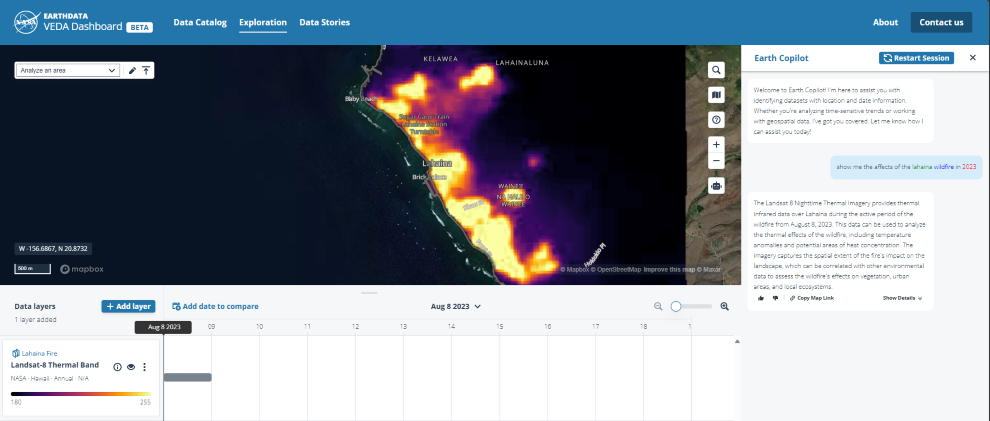How Microsoft Dynamics 365 and Avalara make sales tax easy
In this guest blog post, Brenda Connell, writer for Avalara, explains how e-commerce creates a challenging sales tax landscape for businesses of all sizes, and how Avalara and Microsoft Dynamics 365 help these businesses stay compliant and avoid fines and penalties.
Sales tax used to be somewhat simple: A business sold its products or services from its physical location, then collected and remitted sales tax based on the laws of that jurisdiction. The business did that because it had nexus — the connection to a jurisdiction that creates an obligation to collect sales tax.
In 2018, that all changed with just one court decision — a case that completely upended the entire U.S. sales tax landscape for businesses of all sizes, in just about every industry, regardless of location. Businesses around the world are still feeling the repercussions of the U.S. Supreme Court’s decision in South Dakota v. Wayfair, Inc.
The evolution of nexus — and sales tax
Before the days of online sales, and even for a time after online sales became more prevalent, nexus was based almost entirely on physical location — where a business had offices or storefronts, or where it had operations such as warehouses. Because laws typically take time to catch up with technology, many online sales went untaxed for years.
That was great for consumers, but not so great for revenue-starved states. The Supreme Court gave those states a lifeline.
Empowered by the Wayfair ruling, states began creating “economic nexus” laws — giving them the ability to tax sales to customers in their states, even if the seller is located across the country (or in another country). Many of these laws create annual thresholds for sellers that can be as low as 200 sales in a state; once the threshold is passed, the seller is required to abide by the sales tax laws of that jurisdiction.
Of course, 200 transactions is nothing for an enterprise-level business, but even a smaller business can hit that number easily — it would take just 17 customers with a monthly software subscription to hit that number in a year.
Add it all up, and economic nexus laws mean a business that might have had to manage sales tax in just a few states now could have tax obligations in all 50 states. And that’s a lot harder to navigate.
Why it matters
It would be one thing if sales tax were the same in every state and jurisdiction, but that’s not the case. There are over 13,000 different sales and use tax jurisdictions in the U.S., each with its own set of rates and widely varying rules. For instance, some states don’t tax digital products and streaming services, while others do. In certain states, nutritional supplements that are “food-like” (such as a meal-replacement bar) might not be taxed, while supplements sold in pill form are taxable. Some jurisdictions even have sales tax “holidays,” exempting specific categories (such as school supplies) from sales tax at certain times of the year.
And these rates and rules change frequently (there were nearly 99,000 sales tax holiday rule updates in 2023 alone), so manually keeping track of it all is almost impossible. But it’s not optional: Sales tax audits can result in large fines and penalties, and thanks to technology, states are getting better at enforcement.
Below are a few real-world examples of the challenges businesses face. We’ll review later how these companies successfully addressed them.
Industrial equipment dealer: When economic nexus laws began passing across the country, this company discovered it was out of compliance in several states. It had been managing sales and use tax internally, because it only had to worry about one state before the Wayfair ruling. But after 2018, the company’s obligations had expanded significantly.
Retailer: In operation for over seven decades, this longtime retailer needed to modernize — and while its multichannel approach had been successful, the company’s systems weren’t quite ready for the new world of sales tax.
Equipment supplier: This global business providing equipment for establishments that serve a variety of beverages learned the cost of noncompliance first-hand — after being audited in a few states, it not only owed taxes, but also was assessed a large penalty.
Automation to the rescue
Tax compliance offerings have traditionally been limited in most ERPs, largely because many businesses didn’t really face complex sales tax challenges before the Wayfair decision. (Not that managing tax compliance was easy or pleasant, but it was certainly easier before 2018.)
Microsoft Dynamics 365, however, has featured an evolving set of integrated sales tax solutions for 20 years — thanks to a longtime collaboration with Avalara, a Microsoft partner and leader in automated tax compliance. These integrations have helped users streamline management of their compliance obligations right within Dynamics (and ultimately Dynamics 365).
In the wake of the Wayfair decision, Avalara worked with Microsoft to help identify what Dynamics users needed to navigate the new world of tax compliance. The result was the Microsoft Tax Calculation Service API, a flexible framework that offers frequent updates to stay on top of ever-changing tax policies and rates.
Now, the tax solutions integrated within Dynamics do more than just meet today’s needs — they’re designed to evolve in response to whatever tomorrow brings.
Powerful capabilities — and real-world results
These integrations allow Dynamics users to easily automate their tax compliance regardless of how and where they sell — whether online or in person, domestic or international. Key capabilities include:
Registration, calculation, and other fundamental sales tax tasks. Whether a business has obligations in just a few jurisdictions or thousands, Avalara integrated solutions make end-to-end compliance seamless — all the way through filing returns.
Cross-border compliance. VAT and other international taxes, tariffs, and duties add even more complexity to tax compliance, but Avalara integrations in Dynamics support global sales.
Tracking nexus thresholds. Avalara can send alerts to businesses when they near economic nexus thresholds in various jurisdictions.
Managing tax exemptions. Tax-exempt sales can be complicated — the seller must collect a certificate from the purchaser, validate it, and store it in case of an audit. Automation streamlines all steps of the process.
Dynamics users who automate sales tax with Avalara enjoy a vast array of benefits:
Enhanced accuracy. Rates and rules are revised all the time, but Avalara systems are frequently updated to reflect these changes.
Reduced risk. Technology makes it easier for government agencies to find discrepancies in expected tax revenue versus what is collected — which means audits are a big risk. Effectively managing compliance with automation can lower the risk of penalties (including fines).
More efficient use of resources. Automation usually means businesses need fewer people to manage compliance (which means more people can be assigned to more profitable initiatives).
Let’s revisit our real-world examples from earlier. How did Dynamics 365 and Avalara help?
Industrial equipment dealer: The company’s tax obligations expanded significantly after the Wayfair ruling, and it wanted a solution that would integrate with the Dynamics tools it was already using. Today, the company uses Avalara for sales tax calculations, returns, and other tasks — which saves a ton of time, according to one manager.
Retailer: The company needed modernized systems, so the first step was implementing Dynamics 365; next, Avalara AvaTax and Avalara Exemption Certificate Management were added. Now, the company can easily meet customers’ changing preferences — for example, when someone orders a gift at a retail location, the company can fulfill it from a warehouse, have it shipped somewhere else, and know that the tax will be correctly applied.
Equipment supplier: After paying a large penalty following a state audit, the company chose to use Avalara within its existing Dynamics system. Not only was its next audit from the same state completely clean, automating the returns process is saving the company’s CFO four to five days of work each month.
Learn more about Avalara and Microsoft Dynamics 365
To see what automating tax compliance can do for your business, schedule a demo today.
Microsoft Tech Community – Latest Blogs –Read More











